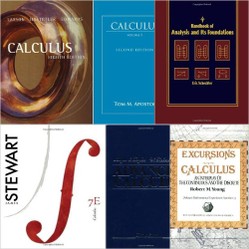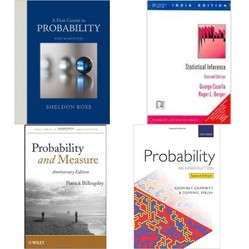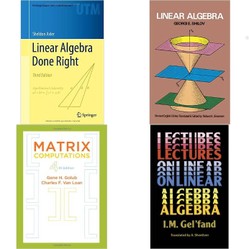This page provides recommendations of calculus textbooks and other books on calculus at three levels: basic intro level (Calc I and II, and Calc III/Multivariable), two calculus-related books for people who already know calculus, that provide a novel approach and new perspectives, and the Advanced Calculus or introductory Mathematical Analysis course most grad students or advanced undergraduates take.
I have a B.A. in Mathematics from Oberlin College (2002), an M.S. in Applied Mathematics from the University of Delaware (2007) and an M.A. in Statistics from Yale University (2008). I have taught calculus I and II at the undergraduate level, and have tutored all levels of math from 2nd grade through Ph.D. students.
In the course of my studies, I read (and at times, taught from) many different math books. This page shares my experiences with the books I found most useful, starting from high school, so that you can make an informed decision, whether you're choosing a book for a class, or buying your own book for self-study.
















 The Shaming of Femininity and Elevation of Masculinityon 07/13/2017
The Shaming of Femininity and Elevation of Masculinityon 07/13/2017
 What is Genderqueer or Non-Binary Gender?on 10/16/2015
What is Genderqueer or Non-Binary Gender?on 10/16/2015
 Resources for Learning Spanish Free Onlineon 04/13/2016
Resources for Learning Spanish Free Onlineon 04/13/2016
 Ways Native Plants Can Help Control Invasive Plantson 05/26/2016
Ways Native Plants Can Help Control Invasive Plantson 05/26/2016



Questions? Comments? Feedback?